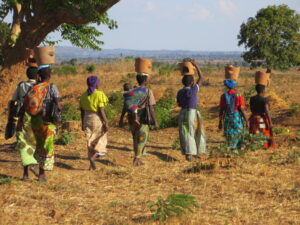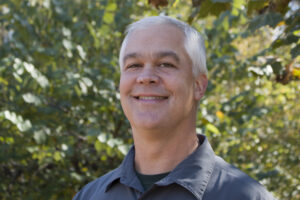
- This event has passed.
Carolina Science Cafe | Malaria in Africa: Ecology, Mitigation, and Challenges
September 5, 2023 @ 6:00 pm – 7:00 pm
Join us on the first Tuesday of every month for Carolina Science Cafe, Morehead Planetarium and Science Center’s free, current science awareness program. For this month, we will be joined by Dr. Michael Emch to explore spatial and timing patterns of malaria in the developing world.
Designed for adults, this program explores the science topics making national and international headlines and offers the chance to meet the experts behind the headlines.
You might have noticed the recent news that there have been several locally acquired cases of malaria in the United States in both Texas and Florida for the first time in 20 years. Before the COVID-19 pandemic, approximately 2,000 cases of mostly travel-related malaria were diagnosed in the United States each year. What does that mean for us here in North Carolina and the rest of the country more broadly? What is malaria and how is it transmitted? Learn more at our September Carolina Science Cafe to find out!

Half of the world’s population is at risk of malaria and there are almost 250 million cases globally and more than half a million deaths annually. More than 90% of the cases and deaths are in Africa, mostly in children. Malaria elimination is a goal with most countries attempting to become malaria-free within the next two decades. While there has been great progress in this fight, there have been recent setbacks. This discussion will describe malaria ecology, mitigation tools, and some of the challenges such as climate change.
Michael E. Emch, PhD, a health geographer, is a W.R. Kenan, Jr. Distinguished Professor of Geography and Epidemiology at the University of North Carolina at Chapel Hill. He is also a Fellow of the Carolina Population Center. He has published widely in the subfield of disease ecology, mostly of infectious diseases of the developing world. He directs the Spatial Health Research Group. He is also a member of the UNC Infectious Diseases, Epidemiology, and Ecology Lab. Many of the courses he teaches are about spatial components of health and disease.
His present research includes an NIH-funded study to evaluate the effectiveness a malaria vaccine in Malawi, Ghana, and Gabon, an NSF-funded study on the landscape genetics of swine influenza, and an NSF-funded study on the relationships between household energy use for cooking and heating and respiratory infections in Southern Africa.

Designed for adults, this program explores science topics making national and international headlines and offers the chance to meet the experts behind the headlines. The Carolina Science Café will be hosted at Gizmo Brew Works on Tuesday, September 5th, starting at 6:00 p.m.
You do not need to register…just show up!
